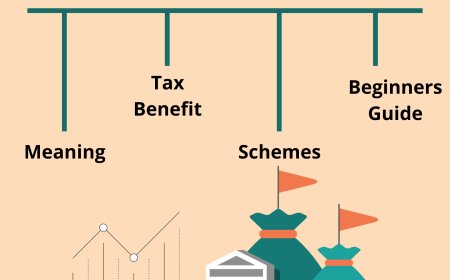Understanding SAP Assessors and Non-Domestic EPC Ratings: What You Need to Know
This guide dives deep into the roles of SAP assessors, the purpose of non-domestic EPC ratings, and why both are essential in today's construction and property industries.

In the modern era of energy efficiency, sustainability, and regulatory compliance, energy performance certificates (EPCs) have become a vital aspect of property management and development in the UK. Whether you're a homeowner, landlord, business owner, or developer, understanding the importance of SAP assessments and non-domestic EPC ratings can help you stay compliant with the law, save money on energy, and promote a greener environment.
This guide dives deep into the roles of SAP assessors, the purpose of non-domestic EPC ratings, and why both are essential in today's construction and property industries.
What Is a SAP Assessor?
A SAP assessor is a qualified professional who conducts Standard Assessment Procedure (SAP) calculations on residential buildings. SAP is the UK government's method for assessing and comparing the energy and environmental performance of dwellings. These calculations are crucial in determining how energy efficient a residential building is based on various factors, including insulation, heating systems, windows, ventilation, and renewable technologies.
SAP assessors play an essential role during the design and construction stages of new builds, conversions, and extensions. They work closely with architects, developers, and builders to ensure that the property complies with Part L of the Building Regulations, which mandates energy performance standards in England and Wales. Without the input of a qualified SAP assessor, getting the final EPC for a new residential building is not possible.
In addition to new builds, SAP assessments are also required when a property undergoes a significant change in use or material alteration. For instance, converting a warehouse into flats would need a SAP assessment to determine the property's energy performance under residential use.
SAP assessors use specialist software to model the building and generate a SAP rating on a scale from 1 to 100+. The higher the score, the better the energy efficiency. Once the calculations are complete, an EPC is issued, which becomes a legal document used for property sales or rentals.
The Importance of Energy Efficiency in Modern Properties
The UK government has laid out ambitious climate targets, including becoming carbon-neutral by 2050. Energy-efficient homes and commercial properties are critical to achieving this goal. Improving energy performance isn't just about ticking regulatory boxesit also has a significant impact on operational costs and comfort levels.
Buildings with high energy efficiency have lower heating and electricity bills, reduced carbon footprints, and better indoor air quality. Moreover, energy-efficient properties tend to have higher market value and are more attractive to eco-conscious buyers or tenants. This is where both SAP assessors and EPC ratingsespecially for non-domestic buildingsbecome central to a property's compliance and desirability.
What Is a Non-Domestic EPC Rating?
A non-domestic EPC rating is the measure of energy efficiency for commercial or public buildings, as opposed to residential properties. These EPCs are required for buildings such as offices, warehouses, retail units, restaurants, schools, hospitals, and other places of business or public service.
Non-domestic EPCs are produced using SBEM (Simplified Building Energy Model), a methodology tailored specifically for the commercial sector. These assessments must be conducted by accredited non-domestic energy assessors and result in a rating between A+ (most efficient) and G (least efficient).
The rating reflects how much energy a building consumes per square metre and how it impacts the environment through CO? emissions. The EPC includes recommendations on how to improve the rating, such as upgrading lighting, enhancing insulation, or installing energy-efficient heating and cooling systems.
Having a non-domestic EPC is a legal requirement when a commercial building is built, sold, or rented. Additionally, properties over 250m that are frequently visited by the public must display their EPC prominently. Failure to comply can result in financial penalties.
Why You Need a SAP Assessor or Non-Domestic Energy Assessor
Choosing the right assessor is crucial. Whether it's for a new residential build or a commercial property, a qualified energy assessor helps ensure your building is compliant with energy regulations and optimally efficient.
Benefits of Hiring a SAP Assessor:
-
Ensures compliance with Part L Building Regulations
-
Improves design and material decisions for energy efficiency
-
Enables legal sale or rental with valid EPC
-
Reduces energy costs for future occupants
-
Increases property marketability
Benefits of Obtaining a Non-Domestic EPC Rating:
-
Compliance with the Energy Performance of Buildings Regulations (EPBR)
-
Avoidance of legal penalties
-
Informed energy-saving strategies for business operations
-
Enhanced corporate image through sustainability
-
Higher rental or resale value
How the Process Works
For Residential Properties (SAP Assessments):
-
The assessor receives architectural drawings or site measurements.
-
SAP software is used to model the buildings performance.
-
Adjustments and recommendations are made if necessary.
-
A draft report is sent to the client.
-
A final SAP certificate and EPC are issued upon completion.
For Non-Domestic Properties:
-
A site survey is carried out.
-
Data is collected on lighting, HVAC, insulation, etc.
-
SBEM software calculates energy usage and emissions.
-
Recommendations are included for performance improvement.
-
An official non-domestic EPC is issued.
Industry Trends and the Push for Sustainability
With climate change being a pressing concern, the property and construction sectors are under pressure to reduce carbon emissions. The Future Homes Standard (set to be enforced by 2025) and Minimum Energy Efficiency Standards (MEES) already make EPC ratings a key element of real estate strategies. Commercial landlords, for example, cannot lease properties with an EPC rating below E without making improvements.
SAP assessors and non-domestic EPC providers are therefore vital professionals in the sustainability chain. Their expertise helps buildings meet net-zero targets and qualify for green funding schemes such as the Green Homes Grant or business energy loans.
The Role of Technology in Energy Assessment
The energy assessment industry is also evolving with technology. Tools such as AI-enhanced modelling, cloud-based software, and digital twins are making it easier to simulate building performance accurately. These innovations enable SAP assessors and non-domestic EPC raters to deliver faster, more reliable results.
Smart meters and IoT (Internet of Things) devices are further enhancing energy monitoring in real-time. This data can be used to update EPCs and provide continuous insights into a buildings operational performance.
Why You Should Act Now
If you're a property developer, business owner, or landlord, dont wait until the last minute to get your SAP or non-domestic EPC rating. Acting early allows you to identify cost-effective improvements, access green incentives, and avoid potential legal issues. Energy performance will only become more critical as environmental regulations tighten and buyer expectations evolve.
Final Thoughts on Non-Domestic EPC Ratings
A non-domestic EPC rating is more than a piece of paperit's a reflection of your businesss commitment to sustainability and efficiency. Whether you own a warehouse, restaurant, or office building, this rating provides valuable insights into energy usage and environmental impact. Staying on top of your EPC obligations can protect your business from legal repercussions and set you apart in a competitive market where energy efficiency matters more than ever.
















































